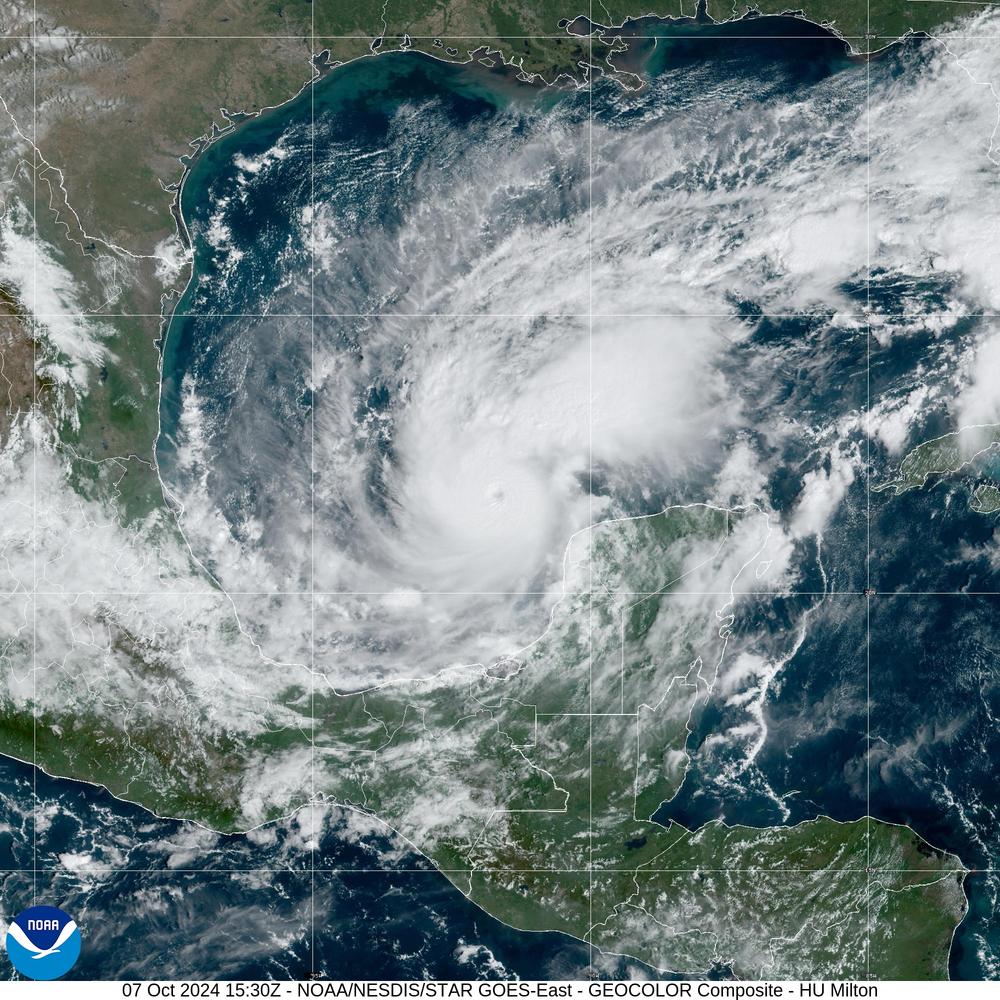
Section Branding
Header Content
Southeast Georgia braces for Hurricane Milton, made potentially more dangerous by Helene
Primary Content
LISTEN: Even if the center of Hurricane Milton avoids Georgia, as it is forecast, impacts are expected to extend into the southeast part of the state. GPB's Benjamin Payne reports.

Parts of Southeast Georgia are preparing for severe weather from Hurricane Milton, as it approaches the west coast of Florida ahead of an expected landfall Wednesday night.
Tropical-storm-force winds and heavy rain could arrive as early as Wednesday morning in several Georgia counties along or near the Florida border, many of which are still grappling with recovery from Hurricane Helene, which pummeled the state less than two weeks ago.
Glynn County emergency management director Andy Leanza said that damage from Helene will likely make his area more vulnerable to Milton than it would otherwise be.
“Our concern is that we have heavily saturated ground from the systems that have passed, plus the damages to the infrastructure from the last storm,” he said. “That could compound the effects of the current storm. So, we anticipate it being worse than typical because of that.”
Further south along the Georgia-Florida border, Camden County emergency management director Chuck White is similarly concerned, and added that Milton is “shaping up to bring a little bit of everything with it,” including storm surge, flooding and strong winds.
“It's not humanly possible to have picked up all of the Helene debris prior to the onset of tropical-storm-force winds coming in for Milton,” he said. “So, what happens when you get another storm on top of the storm, and you've got debris on the ground? That debris can potentially become a missile hazard.”
Although the National Hurricane Center's forecast cone projects that the center of Milton will likely reach no further north than Jacksonville, Fla., impacts extend far beyond a storm's center.
Furthermore, the NHC's forecast cone is accurate for only two out of every three storms on average, according to the agency, leading it to often be referred to as the “cone of uncertainty.”
The Georgia Emergency Management Agency is advising Florida evacuees to not seek refuge in Southeast Georgia, but rather in other areas such as Albany, Columbus, Macon and Atlanta.
The Georgia Department of Natural Resources said in a statement that state parks are open and prepared to receive evacuees who wish to set up their RVs and campers, but that they should make reservations at parks far from impacted areas in order to avoid putting strain on limited resources.
The Georgia DNR warned that some state parks may be closed due to Helene, and advised people to visit the agency's online list of closures.

